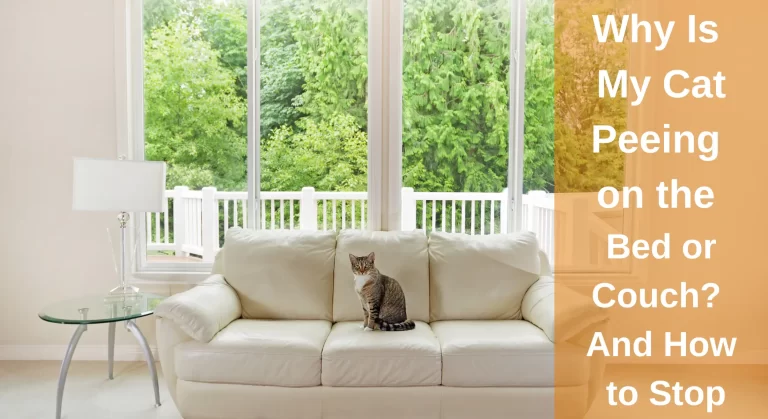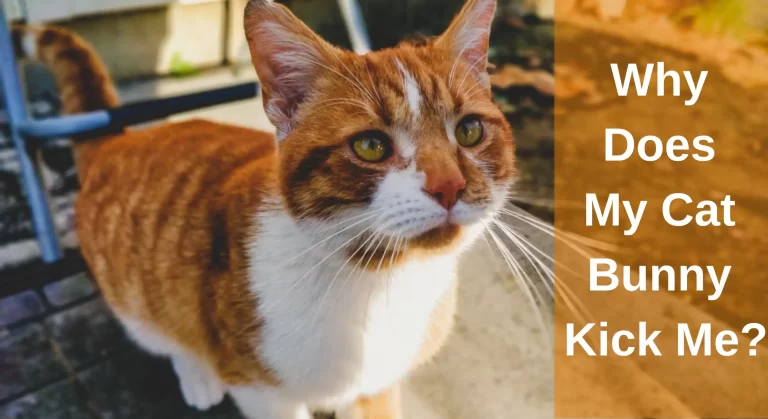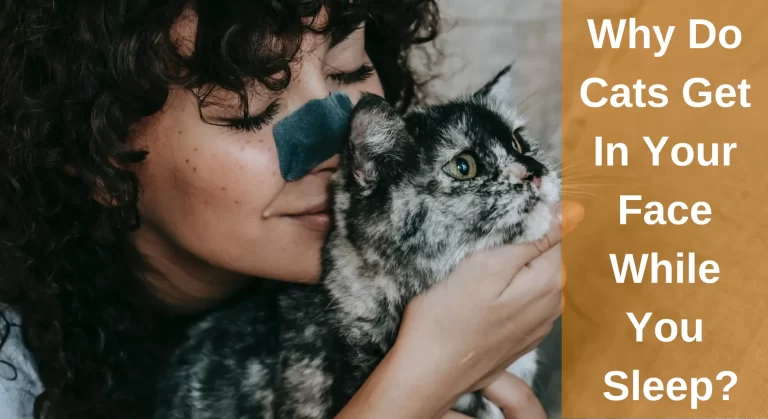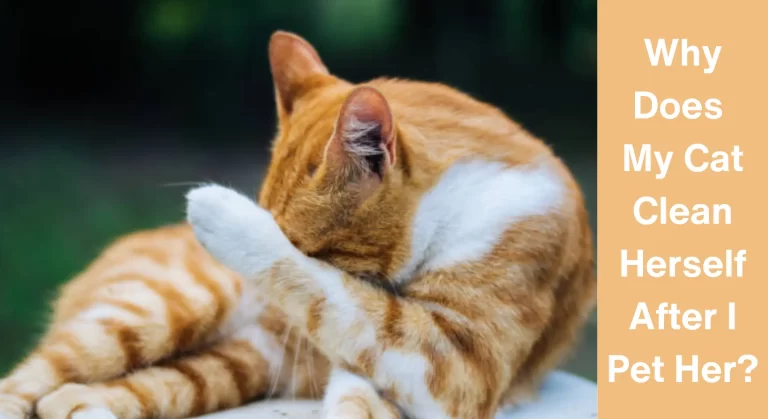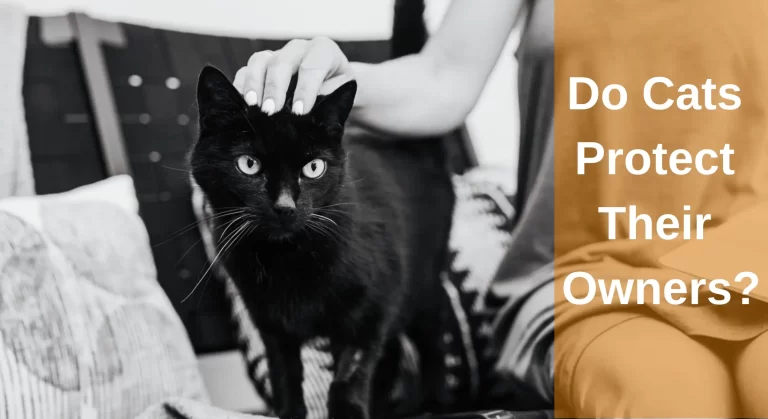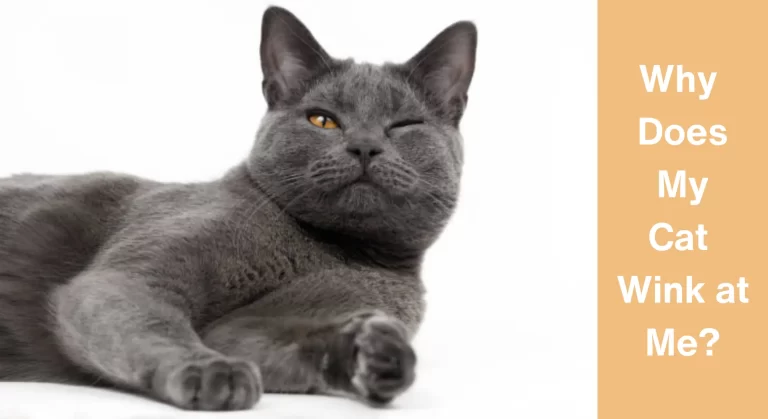Why Do Cats Purr When You Pet Them? Know the Interesting Reasons
Cat’s purring means producing sound by a cat in a low swift manner. Cats typically purr when they are at ease, which releases waves of tranquillity. Cats do, however, purr to convey various needs and emotions. As cats communicate with their humans through body language, the most common sound they make is meowing, hissing, chirping, and growling. Why do cats purr when you pet them?
Cats often purr when they are content, sociable, famished, angry, or in pain. When your cat is purring and holding a relaxed position, it indicates that your cat feels happy and safe around you. Also, too much petting may make your cat uncomfortable; when it becomes uncomfortable, it will purr to relieve itself.
Your cat’s purr may mean several things, according to researchers. Read on to find out what the different reasons might be.
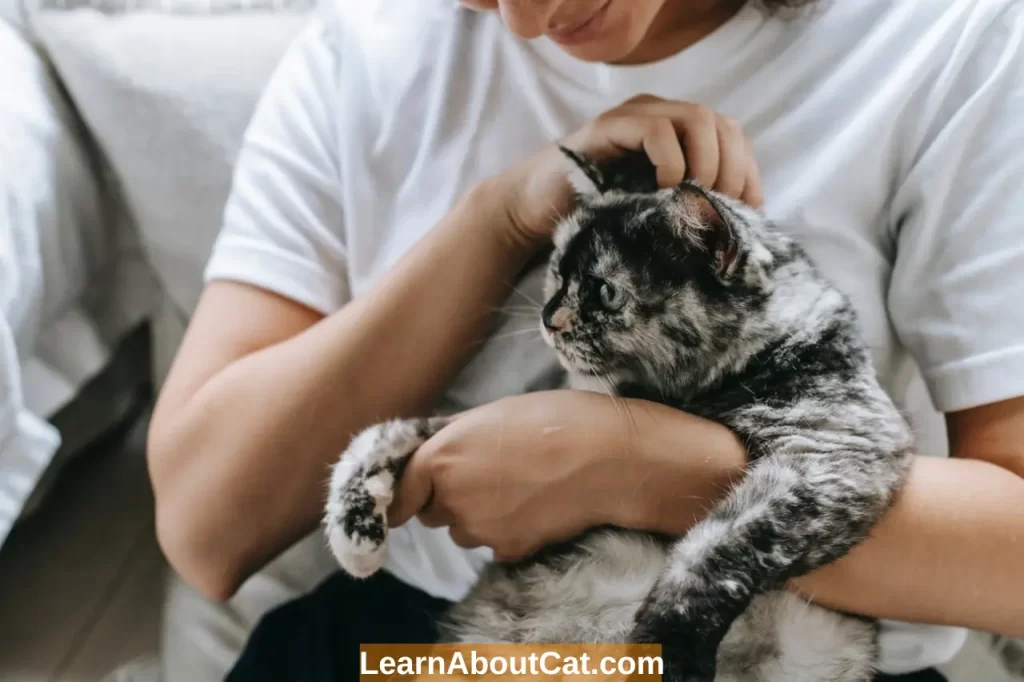
How Do Cats Purr?
Cat owners might question not just why cats purr but also how they manage to accomplish it. How do they make that recognisable sound? Contrary to popular belief, cats don’t have a special bodily component or vocal organ that allows them to purr, which is an intriguing cat fact. Instead, their voice box’s quick motions are what produce the sound.
A purr begins as a signal from the central nervous system that goes to muscles in the voice box. These muscles rapidly contract and relax as the cat breathes in and out, creating vibrations that we can both feel and hear.
Check Out: Why Does My Cat Clean Herself After I Pet Her?
Top Reasons Why Do Cats Purr When You Stroke Them
Cats frequently purr, which is their most common sound for feline communication like other sounds: meows, chirps, chatters, hisses, or growls.
When cats are relaxed, they send out waves of calmness, and this may also happen when they are stroked, meaning they are feeling positive.
There are many ways a cat can purr, and separating them from one another. In order to understand your cat, it is important to know the difference between these types of purring.
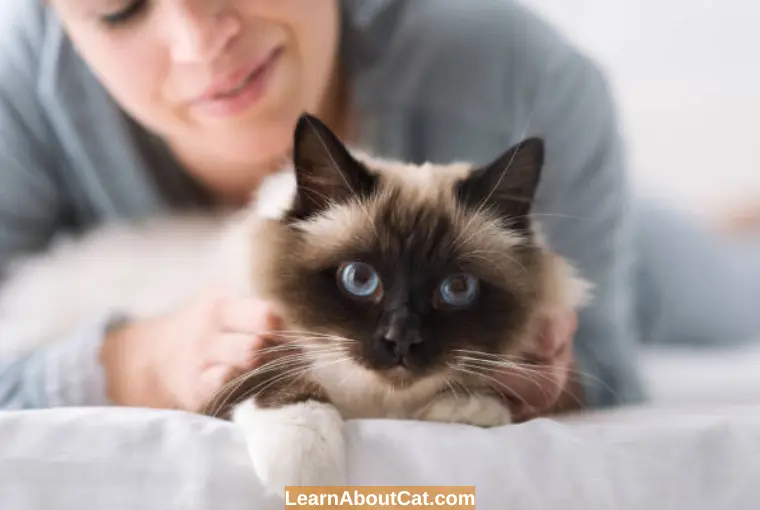
1. Comfort
Many cats will purr even though it consumes energy when they are wounded or in pain. What then justifies the effort?
It could just be a feline’s behaviour of calming down, similar to how a kid can suck their thumb to feel better. However, according to some studies, a cat’s purring may actually hasten its recovery. A series of related low-frequency vibrations that are experienced by a purring person’s body can promote bone and wound healing.
As purring strengthens the muscles and the tendons, easier breathing helps reduce pain and bruising. This could provide some light on why cats have a higher chance of surviving high-altitude falls and have fewer postoperative problems than dogs.
2. They’re Hungry or Want Something
At mealtime, some cats may purr. British researchers looked at the sounds domestic cats make when they are hungry. The purrs differ from one another.
A cat’s purring for food is accompanied by a terrible scream or meow that, in some respects, sounds similar to a newborn crying. Experts claim that this sound makes people more likely to react. Research shows that even those without cats can tell one purr from another.
Do you have a mother cat? If so, they could also be purring while giving birth. Cats have three stages in the birth of their pups. Usually, during the first one, the cat becomes noisier. As her social anxiety increases, she gets restless, wanders more frequently, and purrs. Although not all cats give birth before purring, it is a common symptom.
Cats connect with people and other cats via purring, which is a kind of communication. Kittens first start to purr when they are young. They naturally produce this vibrating noise, which they use to communicate with their mothers. They would act in this way to show their desire for food or for love.
3. Overstimulation
If you stroke your cat, it may purr because they are overstimulated. Pay attention to any warning signs for aggression, such as abrasive, loud purring, biting, and other aggressive behaviors.
But you should always respect your cat’s boundaries and cease petting it as soon as it starts to act upset or start biting or clawing. Cats may also get aggressive if their backs or other parts of their body that they find unpleasant to be handled are rubbed.
Overstimulated cats may exhibit the following symptoms:
- Tail thumping
- Growling or hissing
- Restlessness
- Cats turn their ears back or flick them back and forth.
- Tail twitching
- Cats turning their heads toward your hand
- Dilated pupils
4. Healing
Purring is sometimes referred to as a cat’s or a person’s natural healing process as a result. If a cat is trying to heal itself, it will purr even if it is not a pet.
The frequency of purring, which spans from 25 to 150 Hz, has much to do with its therapeutic power. According to studies, vibrations between 25 and 50 Hz are better for bones in terms of healing than those over 100 Hz for soft tissues.
You may be hearing your cat purr so that she can heal herself by using these frequencies. The frequencies may also support muscle growth, flexibility, and wound healing.
Cats’ purring also causes the production of endorphins, which the body uses to lessen stress and discomfort.
Also Read: Do Cats Purr When They Are in Pain? – Healing Power of Purrs
5. They are Happy
During social interaction, adult cats purr with their siblings, people and objects that they love. Although it has been observed that many cats purr when they are happy and relax this usually happen when you pet them.
It’s safe to assume your cat is happy if they look comfortable, have their eyes closed, are lying flat on their backs, and their tails are mostly stationary.
There are a few spots on domestic cats where they enjoy being stroked or petted the most.
- Under chin
- between ears
- Alongside cheeks
6. They Feel Secure
This one sounds like a contented, at-ease cat, but your cat may also be purring out of security. Once a cat gets to know their owner, they eventually start to trust them. Because you are making them feel loved and content, they feel safe in your arms.
7. Sign of Distress
The purring of cats can sometimes be caused by distress or anxiety. It is possible for them to feel stressed when their household undergoes sudden changes, such as when they bring home a new pet, a new human member, or even make renovations to their house.
Purrs can help calm your cat down during stressful moments. They also make them when they feel fearful or need help.
Are Cats Purrs Beneficial to Humans?
We enjoy hearing our cats’ purr since it is undeniably adorable, especially after a wonderful cuddling session. Did you know that the purring of their feline friends could also be helpful to other people?
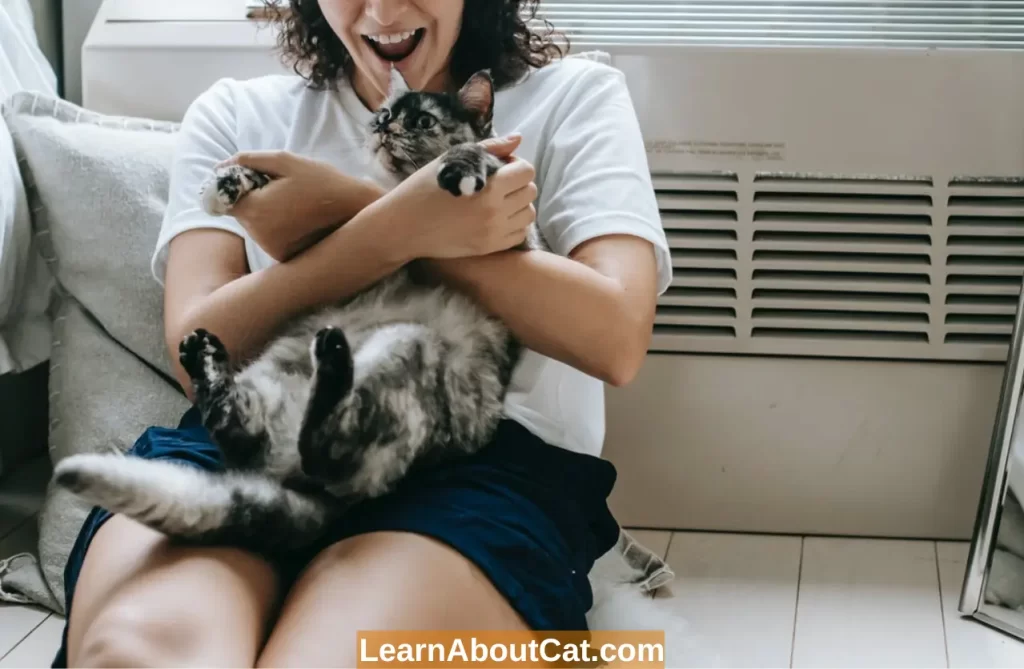
The act of purring releases endorphins in cats, and it can do the same for humans as well.
It is true! Numerous investigations on the therapeutic benefits of these vibrations have been made, and some of these investigations suggest that the vibrations that cats create can:
- Cut down on the likelihood of getting heart disease.
- Help with soreness in the joints, tendons and muscles.
- Reduce your stress level.
- Help to manage pain as well as swelling.
- Encourage bone formation and repair.
- Relax your breathing.
How Can You Determine Where Your Cat’s Purring Came From?
Even if cats don’t always purr to convey happiness, you shouldn’t panic the next time you hear one. Your cat, nevertheless, ambles along despite the fact that it is connected to joy for a purpose.
While certain animals might purr when they are injured or angry, studies say that our furry pals are more likely to do so when they are satisfied.
Find Out: Can Cats Control Their Purring?
Why Is My Cat Not Purring?
If a cat isn’t purring, it’s not an issue. On the other hand, the cat can be extremely content; she will just use various channels to do so. Not all cats communicate in the same way; your cat may use different clues to tell you whether she loves you, needs food, or wants to play.
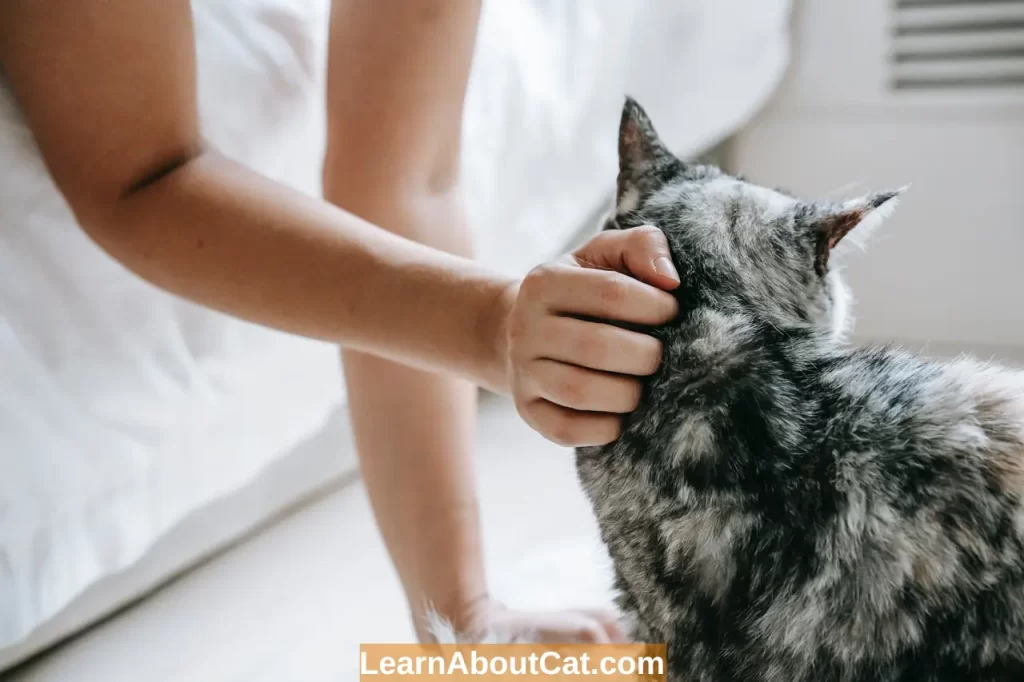
She seldom purrs, but you shouldn’t be alarmed because you’ll likely notice anything out of the ordinary through other signs and symptoms right soon.
Remember that each cat has a distinct purr as well. Whether you haven’t heard your furry baby’s purring, feel her neck to check if it is vibrating. You could unpredictably tremble even in the absence of any audible stimuli. There will be very quiet cats and cats that make a lot of noise. Wild cats are often quieter and less likely to purr than domestic cats.
Frequently Asked Questions
Do cats purr because they like you?
One of the most obvious signs that your cat loves you is when they purr, especially when you are caressing them.
When your cat purrs and adopts a comfortable body posture, which is only one of the many noises cats use to communicate with people, they are telling you that they are happy and secure with you.
What does it mean when a cat is purring and cuddling you?
They are establishing a bond with you. Whenever your cat hits you, snuggles with you, or purrs at you, they show you how much they love and appreciate you.
Why does my cat purr when I barely touch her?
Your cat loves you when it purrs when they are blissful or rubs against you when they are doing something that feels good, such as rolling around with you or rolling around on your lap.
Do cats purr when they are happy and relaxed?
Yes, cats purr when they are content. While your pet is resting in the sun and breathing in and out, you can hear a gentle rumble. There is a tiny tremor when you touch them. They almost appear to be sending out waves of tranquillity.
Final Words!
Cat purring is typically associated with happiness and contentment. Cats vibrate and make the prettiest sound, and they also seem to be in a relaxed mood. They could even be purring from their sense of security in your presence.
As you’ve previously read, it’s not necessarily a sign of joy for your furry offspring, though. Despite the fact that cats often purr when they are petted, you should use caution. You should be aware of the signs that suggest you should stop petting cats since there is such a thing as feline overstimulation.
Related Posts:
Who is Isabella?
My name is Isabella, and I am a dedicated and knowledgeable cat enthusiast. With years of experience caring for cats and a deep love for felines, I made a mission to help other cat lovers navigate the challenges of cat ownership.

